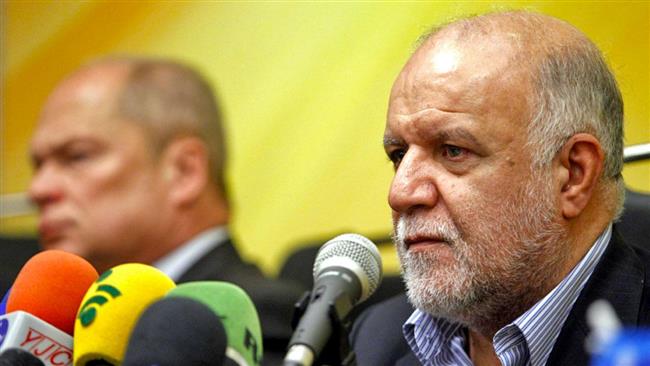PHOTO: Oil Minister Bijan Namdar Zanganeh “Hope for contracts within 2-3 months”
Amid continued delays over contracts to revive Iran’s production, Oil Minister Bijan Namdar Zanganeh has pledged that there will be deals with foreign companies by October.
Zanganeh said on Monday that he expected the agreements to raise Iran’s production by 600,000 to 700,000 barrels per day over the next five years.
He indicated that most of the increase will come from fields in western Iran along the Iraqi border.
With January’s implementation of the July 2015 nuclear deal, Tehran has hoped for a revitalized energy section. Production was more than 4 million bpd in 2011, before the full effect of US-led sanctions. By mid-2013, with exports falling up to 65%, output was only 2.5 million bpd.
With the restoration of existing production, Iran lifted almost 3.6 million bpd in April 2016. However, further increases are dependent upon the development of the oilfields, which is dependent on new technology from foreign companies.
Almost all companies left Iran by 2010 both because of sanctions and because of difficulties over contracts.
Iran is now replacing the system of “buyback” deals, in which a foreign contractor gets an agreed price per barrel, for an Iran Petroleum Contract in which the foreign company gets a share of output.
However, negotiations have stumbled over issues such as the length of the contact and the amount of the share received by the foreign partner.
Iran’s hardliners have criticized Zanganeh for giving away too much to outsiders. The Revolutionary Guards, who have a significant role in operations in the oilfields, are also way of foreign companies cutting into their share and revenues.
In a recent concession to the critics, Zanganeh removed a clause offering an alternative, similar field for exploration if a foreign company failed to make a discovery in an initial site.
On Sunday, the Minister replaced the managing director of the National Iranian Oil Company, Rokneddin Javadi. Reports said that Javadi, who formally resigned to become a Deputy Minister for Hydrocarbon Resources, had disagreed with Zanganeh over terms of the Iran Petroleum Contract.
Zanganeh said some of the IPC’s critics are within the NIOC itself, but asserted that there are “not very many of them”.

